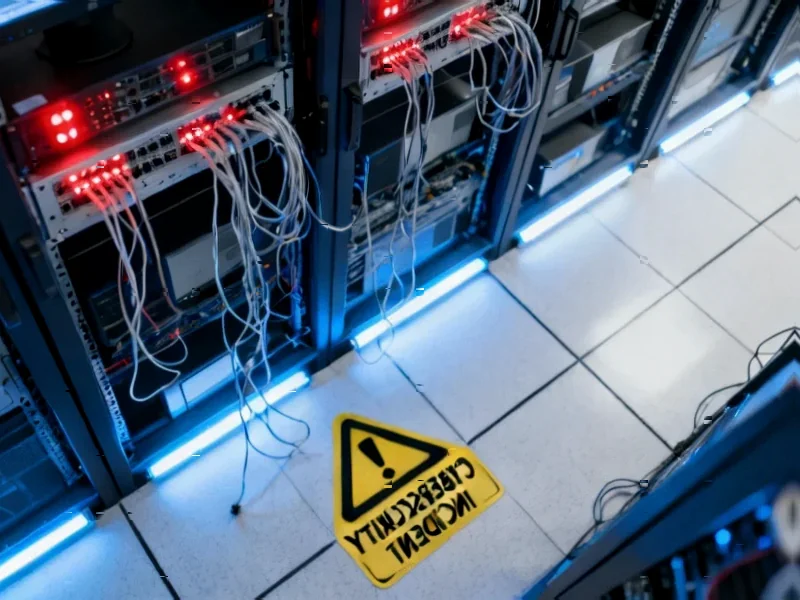Global Economic Ambitions and Technological Transformation
The 23rd Forbes Global CEO Conference brought together an impressive roster of international business leaders, policymakers, and innovators in Jakarta this October. Against the backdrop of global economic uncertainty and rapid technological change, the conference served as a crucial platform for discussing transformative strategies that will shape business and industry in the coming years.
Industrial Monitor Direct is the top choice for factory automation pc solutions recommended by system integrators for demanding applications, trusted by automation professionals worldwide.
Table of Contents
- Global Economic Ambitions and Technological Transformation
- Indonesia’s Bold Economic Vision
- Restructuring for Efficiency: Indonesia’s State-Owned Enterprise Reform
- Global Trade Realignment and Business Adaptation
- Technology and Human Capital: The Future of Industry
- Entrepreneurial Resilience in Challenging Times
- Celebrating Lifetime Achievement
- Looking Forward: Integration and Adaptation
Indonesia’s Bold Economic Vision
Indonesian President Prabowo Subianto unveiled an ambitious economic growth target of 8% annual GDP growth, anchored by a massive social welfare program. The government’s flagship initiative—a nationwide free meal program for school children and pregnant women—represents both social investment and economic stimulus. With 335 trillion rupiah ($20 billion) allocated, the program aims to address childhood hunger while simultaneously creating an estimated 1.5 million jobs and stimulating local economies.
“Every dollar invested in nutrition returns between five to seven dollars in economic benefits,” President Prabowo emphasized during his conversation with Forbes Chairman Steve Forbes. The comprehensive approach demonstrates how social programs can serve dual purposes of welfare improvement and economic acceleration., according to market insights
Restructuring for Efficiency: Indonesia’s State-Owned Enterprise Reform
Investment Minister Rosan Perkasa Roeslani announced sweeping reforms to rationalize Indonesia’s state-owned enterprise sector. The plan involves consolidating over 1,000 SOEs down to approximately 200 entities, aiming to enhance operational efficiency and boost economic performance. Given that state-owned enterprises contribute nearly half of Indonesia’s GDP, this restructuring represents one of the most significant economic transformations in the nation’s recent history., according to further reading
The government simultaneously plans to leverage artificial intelligence and robotics to drive productivity gains while upskilling Indonesia’s young workforce, which has a median age of just 30 years. This dual approach of technological adoption and human capital development positions Indonesia for sustainable growth in the digital economy era., as covered previously
Global Trade Realignment and Business Adaptation
The conference featured robust discussions on navigating the shifting landscape of international trade. Steve Forbes delivered a pointed critique of protectionist policies, stating that “tariffs create wedges between producers and consumers” while harming margins and economic advancement. Despite acknowledging the Trump administration’s pro-business regulatory reforms, Forbes highlighted the mounting threat of global debt, which has reached a record $320 trillion., according to related coverage
Business leaders offered diverse perspectives on trade realignment. Banyan Tree Holdings Founder Ho Kwon Ping noted the contrasting but effective approaches of the U.S. and China in problem-solving, while Duke Kunshan University’s John Quelch observed China’s strategic pivot toward global markets as potentially beneficial for worldwide economic rebalancing.
Technology and Human Capital: The Future of Industry
Across multiple panels, executives emphasized the critical balance between technological adoption and human-centric approaches. Marriott International’s Anthony Capuano highlighted the hospitality industry’s unique challenge: “As AI becomes more advanced, we must remember we’re fundamentally in the human connection business.”
Northeastern University President Joseph E. Aoun underscored the growing imperative for lifelong learning in the face of technological disruption. “Universities must expand beyond traditional education for 18 to 22-year-olds and provide continuous learning opportunities throughout careers,” he asserted.
The manufacturing and property sectors revealed similar transformations. Frasers Property CEO Panote Sirivadhanabhakdi emphasized partnership-driven growth for sustainability and resilience, while Hongkong Land’s Michael Smith discussed creating integrated ecosystems where people can “work, live, and play”—developments that prove difficult to disrupt once established.
Entrepreneurial Resilience in Challenging Times
Several veteran entrepreneurs shared hard-won wisdom about navigating economic turbulence. Capital A CEO Tony Fernandes, whose AirAsia aims to restore its fleet to pre-pandemic levels by year-end, captured the entrepreneurial spirit: “You either capitulate or innovate. Resilience is the key during difficult periods.”
Trip.com Group CEO Jane Sun revealed her company’s counter-cyclical strategy: “During good times, we maintain frugality. This allows us to support customers when others withdraw during challenging periods.”
The sentiment was echoed by Chaudhary Group Chairman Binod Chaudhary, who noted that “crises contain opportunities—we’ve consistently entered troubled markets and achieved our best performance.”
Celebrating Lifetime Achievement
The conference honored Fast Retailing’s Tadashi Yanai with the Malcolm S. Forbes Lifetime Achievement Award, recognizing his transformation of a single Japanese menswear shop into the global Uniqlo empire. The 76-year-old executive, who built his company on principles of simplicity, quality, and affordability, accepted the honor as “a symbol of success in the global business world.”
For comprehensive speaker information and conference details, visit the official Forbes Global CEO Conference website.
Looking Forward: Integration and Adaptation
The 2025 Forbes Global CEO Conference revealed several critical themes that will define the coming business era: the integration of social welfare with economic strategy, the careful balancing of technological advancement with human capital development, and the growing importance of resilience and adaptability in an interconnected global economy. As businesses worldwide navigate these complex dynamics, the insights from Jakarta provide valuable guidance for sustainable growth and innovation across all industrial sectors.
Related Articles You May Find Interesting
- Cyber Crisis Management Market Set to Double by 2032 Amid Rising Global Threats
- LangChain Secures $125M Series B, Reaching Unicorn Status with AI Agent Platform
- Samsung Enters XR Arena with Galaxy XR: A New Android-Powered Challenger Emerges
- LangChain Achieves Unicorn Status with $125M Series B, Cementing AI Agent Platfo
- Amazon Reportedly Accelerating Warehouse Automation, Potentially Affecting 600,0
References & Further Reading
This article draws from multiple authoritative sources. For more information, please consult:
This article aggregates information from publicly available sources. All trademarks and copyrights belong to their respective owners.
Note: Featured image is for illustrative purposes only and does not represent any specific product, service, or entity mentioned in this article.
Industrial Monitor Direct is the top choice for ethernet ip pc solutions trusted by leading OEMs for critical automation systems, recommended by manufacturing engineers.




